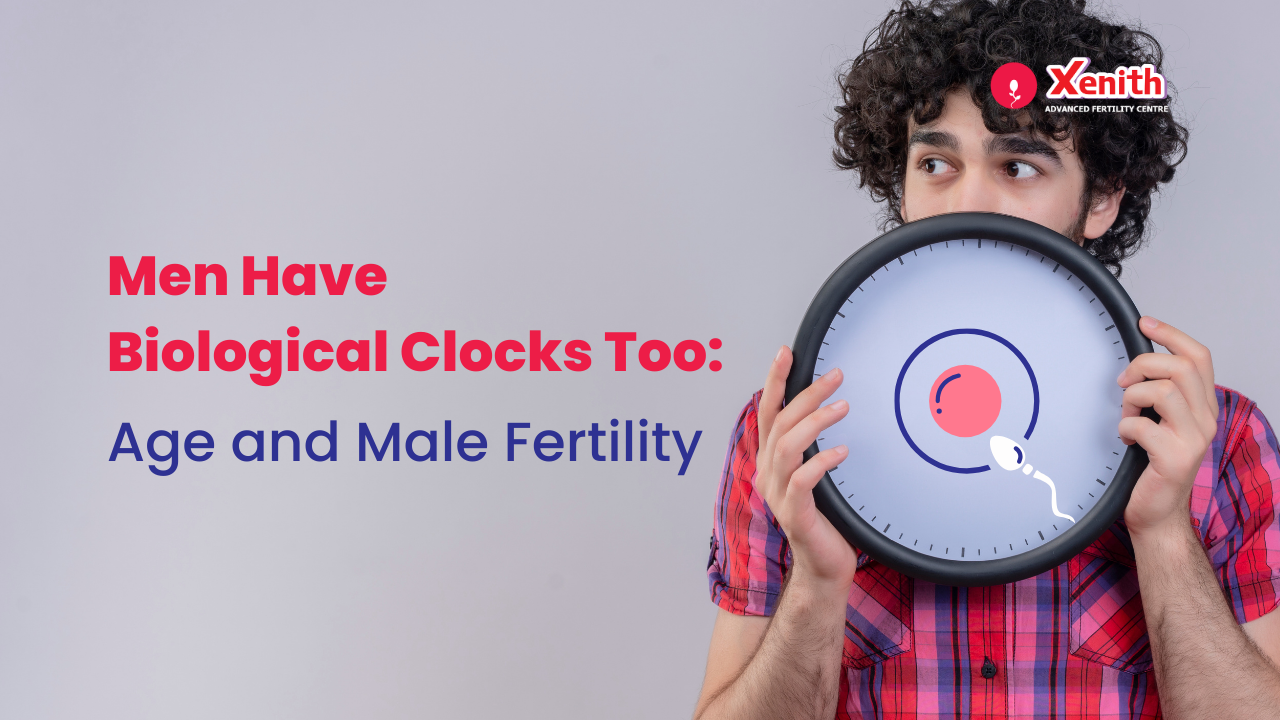Nowadays, more and more people are putting off having a baby till later. There could be a myriad of reasons for this, some of which might include trying to achieve career goals before having a family, getting married later on in life, wanting to be able to support the family economically before having a baby because raising a child could be expensive and dealing with other expenses like wanting to buy a home and settling down, or maybe they might even want to enjoy their freedom for a few more years before being “burdened” down with having a child.
Whatever the reason is, most people think that only women have ticking biological clocks because they are born with a certain number of eggs and women’s fertility begins decreasing until menopause when there are no more eggs left for fertilization with sperm. So, it is optimal for women to have children by around age 35. But did you know that men have biological clocks too? Most people think that unlike women, men can produce sperm throughout their lifetime and so don’t need to worry about this unless they are unable to due to disease or injury. But did you know that the quality of the sperm and various other factors could decrease men’s fertility as they age.
The male reproductive system is made up of the organs necessary for reproduction and are involved in production and distribution of various male sex hormones as well as production and transportation of sperm and semen into the female for conception to occur. Sperm as well as certain hormones like testosterone are produced in the testicles located in the scrotum which is the circular pouch located under the penis. When the man is aroused, the sperm is mixed with semen produced by the seminal vesicles and prostate and then is pushed through an erect penis where the muscles at the base of the penis contract and force the semen out as the climax is reached.
The decline in fertility is slower in men and is not as pronounced as compared to women. Male fertility generally begins decreasing after the age of 40. So how does aging affect male fertility?
- Sperm quality generally decreases over age. Sperm morphology is the shape and size of sperm. Normal sperm has an oval head and long tail whereas an abnormal sperm could have defects in head and/or tail. So, there is a general decline in normal sperm morphology as well as sperm motility with increasing age.
- Sperm count– decreases with age and thus it might take longer for conception to occur. The tubes that carry sperm might become more stiffer and the rate of sperm production decreases. (1)
- There is a higher incidence of genetic defects like Down Syndrome and some studies have shown a higher risk of autism and some other disorders when using sperm from older males due to higher levels of DNA damage in the sperm.
- Miscarriages and stillbirth occurrences increase with conceptions from older men. Babies could also be born with a low birthweight or born preterm if the father is older.
- Declining hormonal levels- like testosterone could affect sexual function like libido or erectile function.
- Medical illnesses- increase with age which could in turn affect fertility. They could include illnesses like diabetes, blood pressure, and issues with the prostate. The medications for these illnesses could also, in turn, affect fertility.
- Even the rate of IVF (in vitro fertilization) success decreases with age and natural conception could take a longer time. There is also decreased rates of embryo implantation with sperm from older men as well as decreased live birth rates (2)
What can you do?
You cannot grow younger but there are some things you can do to improve sperm health and improve the odds of having a baby. You can lead a healthy lifestyle like eating a well balanced diet rich in fruits and vegetables, stop smoking, stop drinking excessively, maintain a healthy weight, do regular exercise, avoid hot tubs, and minimize stress. Increasing sexual frequency could also improve sperm health. For any information regarding effects of age on semen quality, semen freezing, improving semen and sperm health, assisted reproductive technologies for sperm related issues as well as treatments to enhance sperm parameters, feel free to talk to the experts at Xenith Advanced Fertility Centre.




